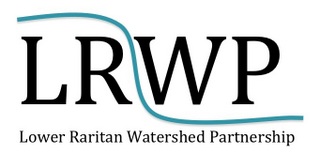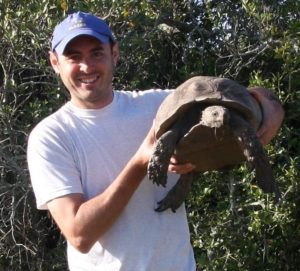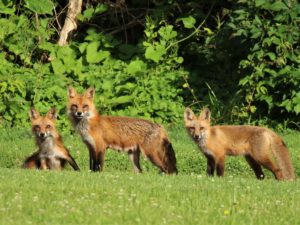
- This event has passed.
Virtual Workshop: Connecting Habitats Across New Jersey
May 4, 2020 @ 9:30 am - 12:30 pm
How should we assess areas for habitat connectivity in our urban watersheds? How can we build support for biodiversity planning in our urban core?
In this half day workshop we will learn how to use tools developed by NJDEP to help assess habitat connectivity needs, and hear from NY/NJ Harbor Estuary about findings from recent citizen science connectivity assessments.
To kick things off, we will hear from Isabelle Stinnette with NY/NJ Harbor Estuary Program who will discuss findings from their Aquatic Connectivity Through Climate-Ready Infrastructure Project. This project uses the North Atlantic Connectivity Collaborative protocols (www.naacc.org) in concert with a hydraulic model to make recommendations for connectivity restoration in New Jersey watersheds.
Following Ms. Stinnette’s presentation we will hear from NJDEP zoologist Brian Zarate and his team who will introduce the statewide habitat connectivity plan called Connecting Habitat Across New Jersey (CHANJ), launched last year by the NJ Division of Fish and Wildlife. NJDEP will provide an overview of the major tools that CHANJ offers to guide a multi-scale, all-hands-on-deck approach to improve landscape and roadway permeability for wildlife, demonstrate the new interactive, web-based CHANJ Mapping tool, and show how it can be used to help guide land protection and management and to mitigate barriers to wildlife movement – goals that are particularly urgent in the face of climate change and urbanization.
This online workshop will run from 9:30 am – 12:30 pm on Monday May 4.
Presenters:
Isabelle Stinnette is the Restoration Manager at the New York – New Jersey Harbor & Estuary Program (HEP), where she runs the inter-agency restoration work group, tracks restoration progress in NJ and NY, and works with partner agencies to further habitat restoration efforts. Prior to joining HEP, she worked for the NYS Department of Environmental Conservation (DEC) as a Restoration Biologist as well as Research Technician expediting storm recovery and resiliency projects. Isabelle has a M.S. degree from the School of Marine and Atmospheric Science at Stonybrook University and a B.A. from St. Lawrence University.
Brian Zarate is a Senior Zoologist with the New Jersey Division of Fish and Wildlife’s Endangered and Nongame Species Program (ENSP). He coordinates the state’s reptile and amphibian conservation work and leads a statewide wildlife initiative called Connecting Habitat Across New Jersey (CHANJ). After receiving his BS in Natural Resource Management from Rutgers University in 2001, Brian worked for the U.S. Forest Service in Alaska and then returned to New Jersey to begin employment for the Division. Until 2007 Brian worked under contract for the state through the Conserve Wildlife Foundation of New Jersey not-for-profit agency and then was hired by ENSP later that year. Brian serves on committees and boards for the Wildlife Habitat Council, American Turtle Observatory, NRCS, and the Highlands Council. He’s currently a national co-chair for Partners in Amphibian and Reptile Conservation (PARC) and a long-standing member of the Northeast PARC steering committee.
Resources:
The LRWP explains why we need improved habitat connectivity, especially in our urban areas
Nature of Cities talks about planning for biodiversity conservation, see also their “Building for Birds” on-line tool
PBS’s Eco Sense for Living recently produced a “Wild Crossings” special feature highlighting habitat connectivity in New Jersey
REGISTRATION REQUIRED. Registration closes 6 PM Sunday May 3. Registrants will receive a link to the training on Sunday evening in advance of the Monday session.
——————————————————
Photo: Roger Dreyling, “BioBlitz Foxes” @ Elmwood Cemetery, New Brunswick 6.18.2019




